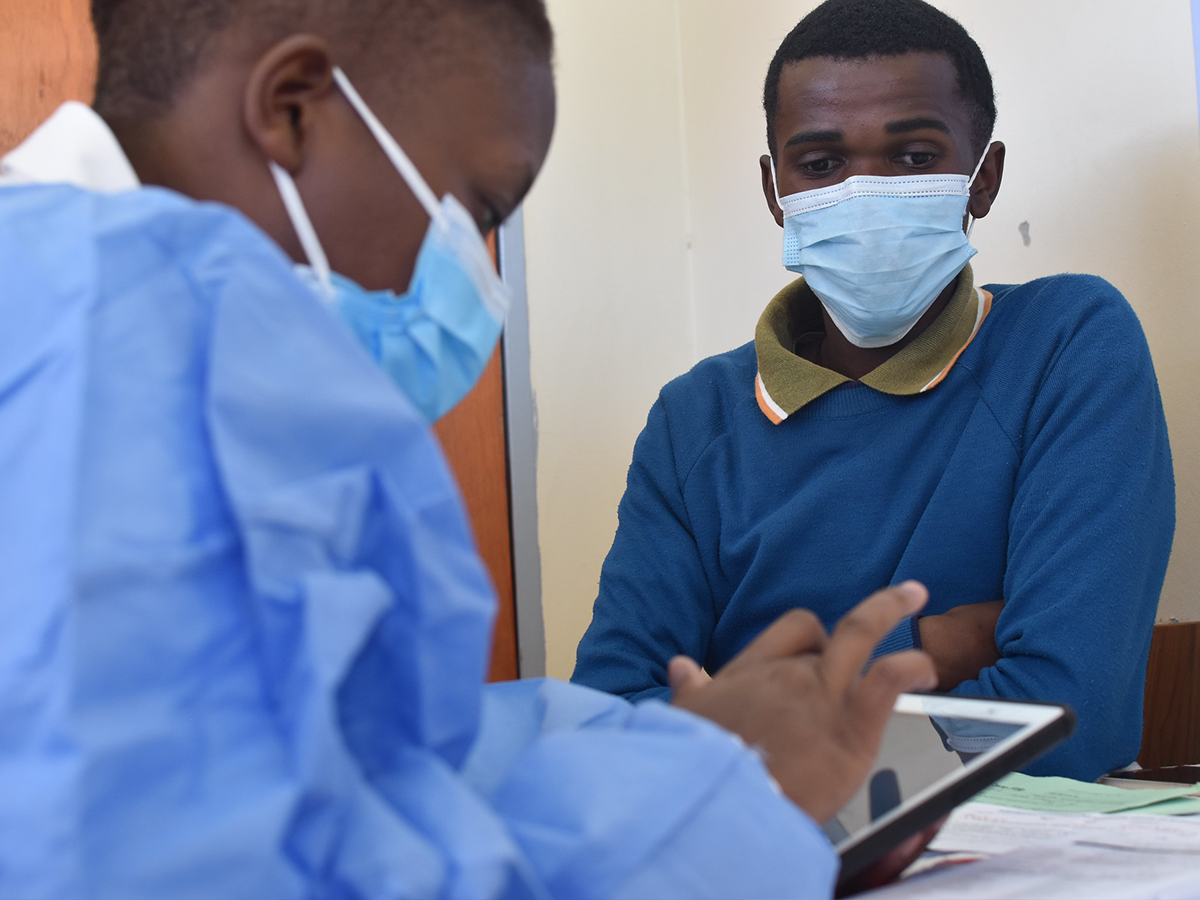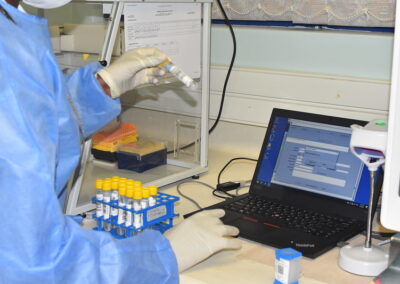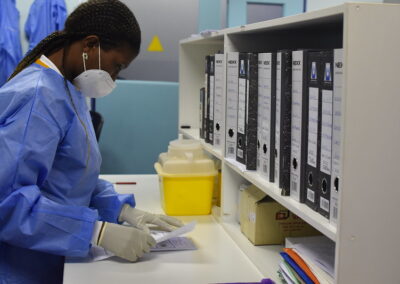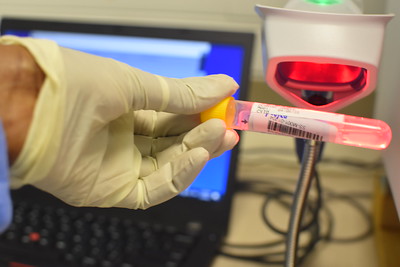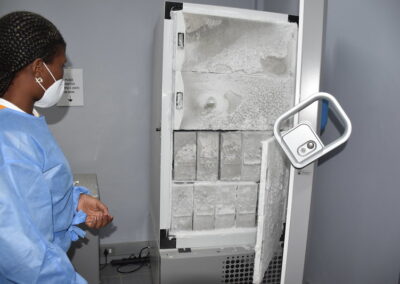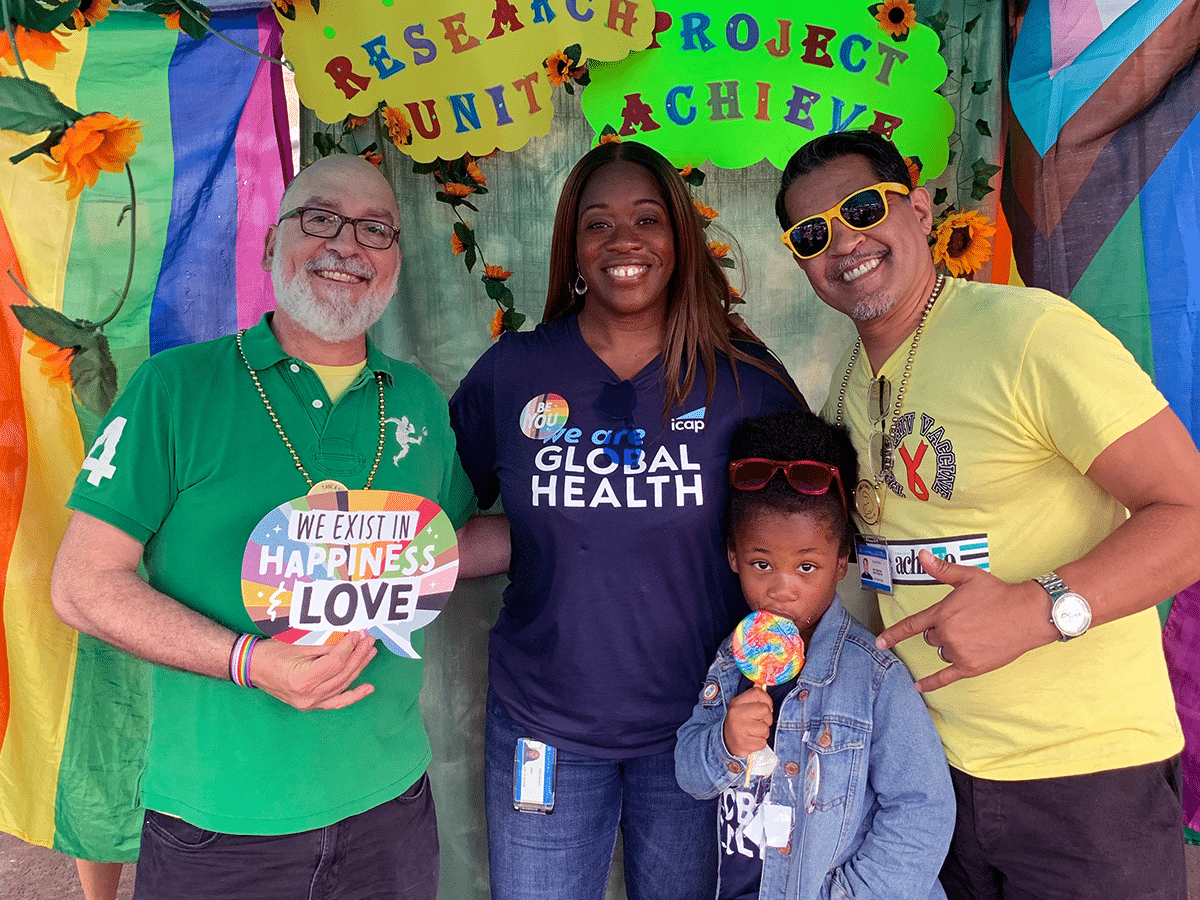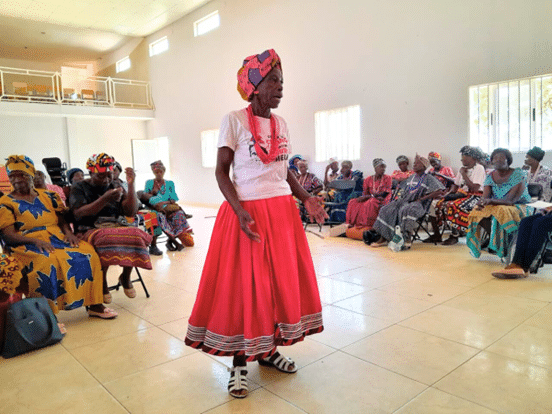At the Mbabane Regional Hospital HIV clinic in Eswatini, Bongiwe Matsebula, RN, nurse, and ICAP surveillance officer fills out an online screening form for a patient. Machawe Nkwanyana, the patient, is a 27-year-old man eager to know his COVID-19 status. Even though Nkwanyana is vaccinated and reports no COVID-19 symptoms, he is concerned because he attends a large, crowded church vigil at least once a week.
After filling out the screening form, Nkwanyana gets a free COVID-19 test. Then, Matsebula will use his test sample for an ICAP-supported COVID-19 sentinel survey.

Bongiwe Matsebula, nurse and ICAP surveillance officer takes Machawe Nkwanyana’s nasal swab for the ICAP -supported COVID-19 sentinel survey.
Collecting a nasal swab sample is the final data collection step for the sentinel survey, which monitors and estimates COVID-19 infection rates and trends in Eswatini.
With funding from the U.S. President’s Emergency Fund for AIDS Relief (PEPFAR), through the U.S. Centers for Disease Control (CDC), ICAP has been providing technical assistance support to the Eswatini Ministry of Health to collect and analyze COVID-19 data in the Southern African country since April 2021.
“Data collection from the sentinel survey will help guide Eswatini’s response to the pandemic by helping the Ministry of Health determine COVID-19 trends and waves to develop disease prevention measures to curb the spread of the pandemic,” said Ruben Sahabo, MD, ICAP’s country director in Eswatini.
“I take an average of 10 samples a day,” said Matsebula, who rotates between the HIV, outpatient, non-communicable diseases, and in-patient departments. She approaches patients and educates them on the purpose of the test to collect samples for the survey. Patients at the HIV clinic coming for a routine checkup will have their viral load blood samples taken by Matsebula as well to save time.
At the end of the day, Matsebula transfers all the collected COVID-19 test samples to the Mbabane Regional Hospital laboratory for a technician to process, sort, and record the results.
At the Hospital laboratory, technicians have kept and stored hundreds of test samples since data collection started. The laboratory technicians record test results in folders according to month and year. They also reserve the nasal swab samples in a freezer. The Ministry will keep the samples for the next decade in case of any future COVID-19 research.
To date, ICAP has supported the Ministry of Health in collecting 4907 COVID-19 samples, with 10 percent of the samples testing positive for COVID-19.
Currently, COVID-19 vaccine coverage is low in Eswatini, with less than 40 percent of the population vaccinated. With accurate data collection to lead the pandemic response, ICAP hopes to support the Eswatini Ministry of Health attain its target of vaccinating at least 70 percent of the population.


